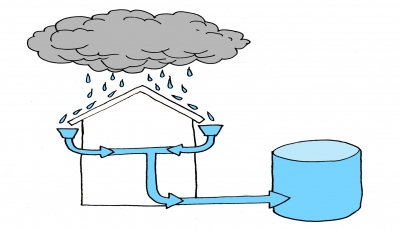Fostering Source Effectiveness and Environmental Management With Liquid Waste Removal Programs
In the realm of ecological stewardship, the management of liquid waste stands as a vital time where resource effectiveness and environmental protection merge. Via a lens of proactive engagement and critical foresight, the landscape of liquid waste monitoring reveals a tapestry of obstacles and opportunities that beckon us to discover the course towards a greener and even more lasting future.
Importance of Liquid Waste Removal
The significance of liquid waste elimination exists in its vital duty in preserving environmental health and securing public well-being. Liquid waste, if not appropriately handled, can position significant hazards to environments, water sources, and human health. With effective elimination processes, damaging compounds such as pathogens, chemicals, and contaminants are prevented from contaminating the setting and creating destructive results.
Proper fluid waste elimination likewise helps in preventing the spread of illness and decreasing the possibility for groundwater contamination. By safely getting rid of liquid waste, the danger of waterborne diseases and pollution-related wellness issues is dramatically lessened - Liquid waste removal. In addition, reliable removal practices add to maintaining the general cleanliness and visual appeals of areas, thus improving the lifestyle for locals
In addition, liquid waste elimination plays an essential role in sustaining sustainable advancement and ensuring conformity with environmental policies. By adhering to correct waste management methods, industries and services can decrease their ecological footprint and demonstrate company obligation. Ultimately, buying robust liquid waste elimination programs is important for promoting environmental stewardship and cultivating a much healthier, more secure future for all.

Benefits of Efficient Disposal
Reliable disposal of fluid waste not just safeguards environmental health and public wellness but additionally yields numerous advantages that extend past prompt containment steps. Via procedures like reusing and energy healing, useful resources can be drawn out from liquid waste, promoting sustainability and lowering the pressure on raw materials. In general, the advantages of efficient fluid waste disposal are complex, encompassing environmental security, resource efficiency, and economic benefits.
Technologies for Waste Treatment
Using sophisticated modern technologies for waste therapy plays a crucial role in making sure the reliable administration and secure disposal of fluid waste. One of the crucial modern technologies utilized in liquid waste treatment is organic therapy.
In addition, thermal treatment methods such as incineration can be used for the full damage of harmful components in liquid waste. Generally, the integration of diverse therapy modern technologies ensures detailed and environmentally pleasant monitoring of liquid waste.
Role of Laws and Compliance
In the realm of liquid waste administration, adherence to regulative structures and conformity standards is advice vital for securing environmental wellness and sustainability. Laws play a critical role in controling the appropriate handling, treatment, and disposal of liquid waste to avoid damage to environments and human wellness. By developing clear guidelines and criteria, regulatory bodies make certain that services and individuals associated with liquid waste administration run in an environmentally accountable way.
Conformity with these laws is not only a lawful need but also a moral obligation to protect the environment for present and future generations. It involves implementing best methods in waste collection, disposal, therapy, and transport to lessen environmental influence and advertise source effectiveness. Non-compliance can lead to penalties, lawful action, and reputational damages for companies, highlighting the significance of maintaining governing criteria.

Future Patterns in Waste Administration

Another key fad in waste management is the adoption of sophisticated data analytics and expert system to maximize waste collection courses, improve arranging processes, and improve total operational performance. These innovations make it possible for waste management firms to make data-driven choices, causing set site web you back savings and ecological benefits.
Additionally, there is an expanding focus on the development of decentralized waste monitoring systems, such as onsite therapy facilities and mobile waste processing systems. These systems provide versatility and scalability, permitting extra effective waste handling in varied environments.
Final Thought
Finally, fostering source effectiveness and environmental management via fluid waste elimination programs is important for lasting growth. Effective disposal techniques, progressed innovations for waste therapy, and rigorous policies play vital roles in minimizing ecological influence. Looking in advance, constant development and improvement in waste monitoring practices will be vital for dealing with the growing challenges of fluid waste disposal.
In the realm of ecological stewardship, the administration of liquid waste stands as a vital point where resource effectiveness and environmental security merge (Liquid waste removal).Using advanced modern technologies for waste treatment plays an essential duty in making certain the efficient management and risk-free disposal of liquid waste.In the world of fluid waste monitoring, adherence to regulative frameworks and compliance criteria is critical for protecting ecological wellness and sustainability.In conclusion, promoting source efficiency and ecological defense through liquid waste removal programs is critical for lasting development. Looking ahead, continuous innovation and renovation in waste monitoring practices will certainly be essential for attending to the expanding obstacles of liquid waste disposal